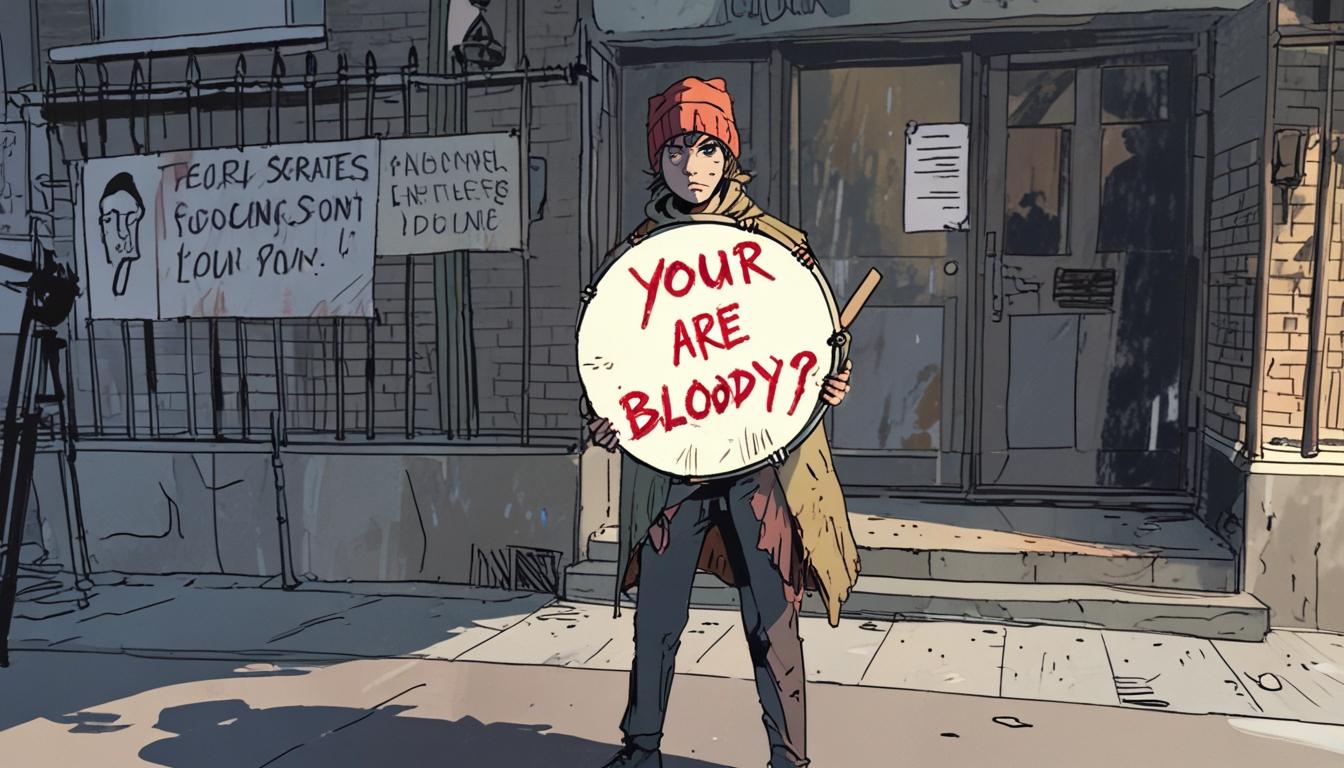Pro-Palestine protesters recently disrupted the filming of Gal Gadot's new movie, The Runner, in London, marking a significant moment in the ongoing tensions surrounding her outspoken support for Israel. As protesters banged drums and shouted "shame on you," they brought production to a halt, claiming the actress's ties to the Israel Defence Forces (IDF) and her vocal backing of Israel's military actions during the recent Gaza conflict are unacceptable. Footage from the protest depicts demonstrators chanting slogans such as "your hands are bloody" and "we can't deal with genocide."
Gadot, who assumed the role of a high-powered attorney racing through London to rescue her abducted son, reportedly appeared on set in a blue running jacket before being replaced by a body double due to the mounting protests. The film is produced by David Kosse's Rockwood Pictures, marking a notable project in an industry that has frequently encountered backlash over its support for Israel amid the ongoing Israeli-Palestinian conflict.
Previously, Gadot garnered considerable media attention during her Hollywood Walk of Fame ceremony, which was also marred by pro-Palestinian demonstrations. Protesters held signs with slogans critiquing her military association and broader geopolitical issues, including "Heroes Fight Like Palestinians" and "No Other Land Won Oscar," which referenced a documentary on land disputes in the West Bank. The event was delayed by approximately 15 minutes as police were called to manage the unrest, accentuating the polarised sentiments surrounding her public persona and career.
As the protests continue to arise around Gadot's appearances, they reflect a sensitive intersection of celebrity culture and political advocacy. Groups like Eye on Palestine assert that their demonstrations extend beyond condemning a single actress; they argue the protests challenge the broader acceptance of perceived war crimes within popular culture. This climate of dissent against public figures tied to controversial national policies has left Gadot open to fierce scrutiny, particularly following her supportive statements regarding Israel's military responses to Hamas's attacks on October 7.
The atmosphere surrounding The Runner echoes similar discontent experienced by Gadot during the promotion of her Disney film, Snow White, which faced its own set of challenges, including allegations of on-set tensions between her and co-star Rachel Zegler over differing political viewpoints. Lebanon's ban on the film, due to Gadot's previous service in the IDF, further complicates her professional space, placing her in a contentious position as a figure whose public appearances are continually intersected by geopolitical narratives.
Legal experts have expressed shock over the involvement of British citizens serving in Israel's armed forces, indicating that the protests are underpinned by significant legal and moral questions about international military engagement. As demonstrators assert that "disruption is our duty," it reveals a deep-seated commitment to protesting what many see as normalised violence and complicity within their cultural spheres. The handling of protests in London today may signal a continued escalation of these disputes within the entertainment industry, making it clear that the consequences of celebrity advocacy can ripple far beyond the silver screen.
In reflecting on Gadot's portrayal and the actions of the protesters, the complexities of celebrity, national identity, and political affiliations remain painfully relevant. As she continues to navigate her career, the impact of these events on her public image and professional trajectory is poised to unfold further against the backdrop of an intensifying international discourse on the Israeli-Palestinian conflict.
Reference Map
Source: Noah Wire Services
